VOTE: What do you think of youth-run campaigns like March for Our Lives?
When the teen survivors of the Parkland, Fla. shooting chose to take on U.S. lawmakers, gun rights activists and the NRA to push for stricter gun controls, they probably expected to face pushback.
Gun culture in the U.S. goes back to the American Revolution and the harsh reality of frontier life. In 1970, the last year of his life, two-time Pulitzer Prize-winning historian Richard Hofstadter wrote that the gun rights culture that persisted into the 20th century originated in a time when men and women were safer if they could use a rifle.
“That familiarity with the rifle, which was so generally inculcated on the frontier, had a good deal to do with such successes as Americans had in the battles of the Revolution,” he said.
Hofstadter said the passion for an armed populace born of this era “found its permanent embodiment in the Second Amendment to the Constitution.”
While Americans are no longer forced to confront the realities of frontier life or competing European interests in the “new world,” many have kept that passion alive.
So it’s predictable that movements advocating for stricter gun control in the U.S. would encounter pushback.
What the teen leaders of the March for Our Lives movement might have underestimated, though, was the extent to which they would become, collectively and individually, the prime targets of far-right smears, hoaxes and insults.
Attacks range from mocking comments by right-wing pundit Dinesh D’Souza days after the deadly shooting at Marjory Stoneman Douglas Highschool in February to a harshly worded condemnation by Bataclan shooting survivor Jesse Hughes following the March for Our Lives rallies against gun violence.
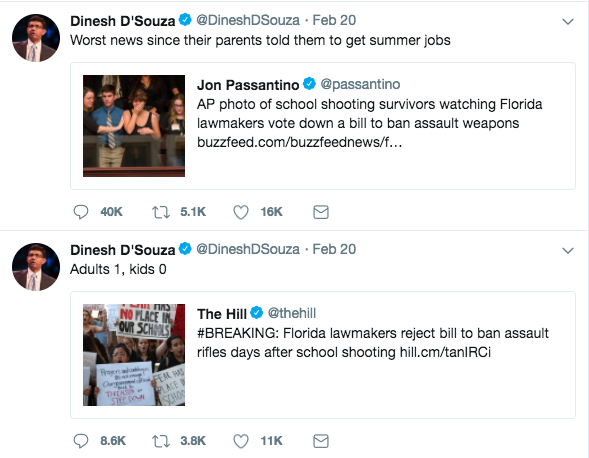
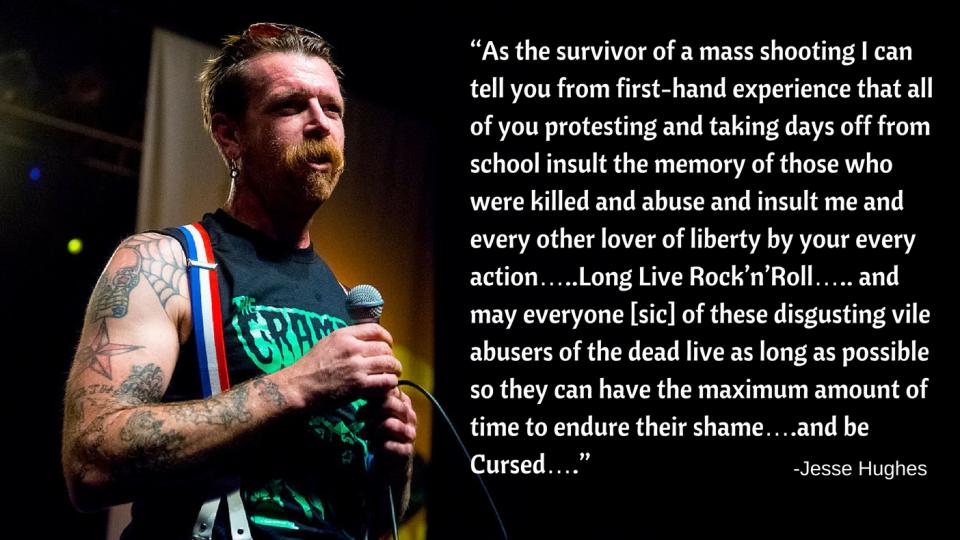
Some critics of the movement have used the age of its central figures to try and discredit them, while also scrutinizing the teens as severely as if they were adults.
David Knight, host of the right-wing news program Info Wars, described Marjory Stoneman Douglas High School student David Hogg as having gone “full Peter Pan” and questioned whether Hogg — a teenager — would ever grow up.
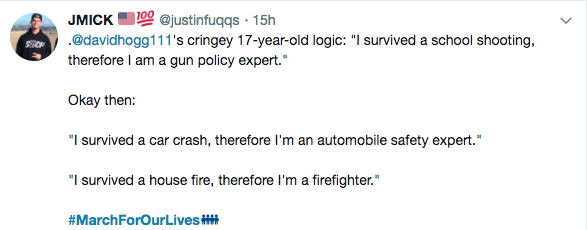
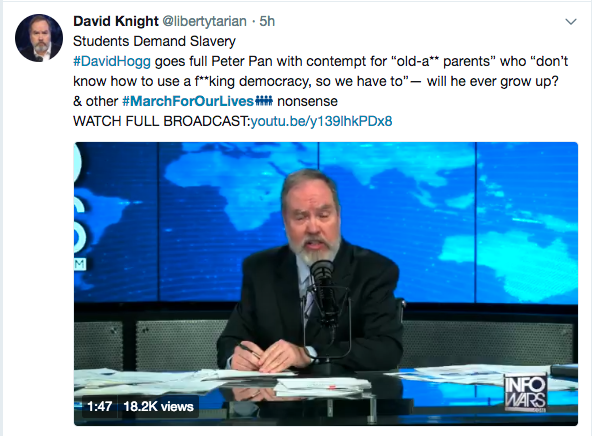
Other critics have described the student activists as “puppets,” and accuse them of repeating lines they’re fed, rather than forming autonomous thoughts and opinions.
Conspiracy theorists have suggested online that the students are paid crisis actors, and have disseminated rumours that their interviews with mainstream media were scripted by the media outlets involved.
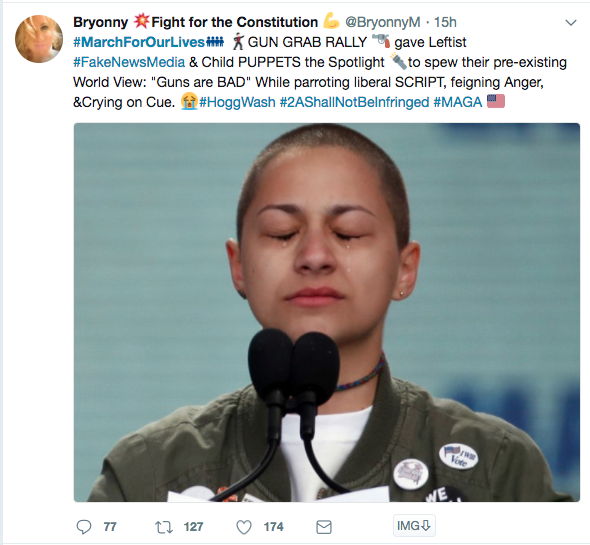
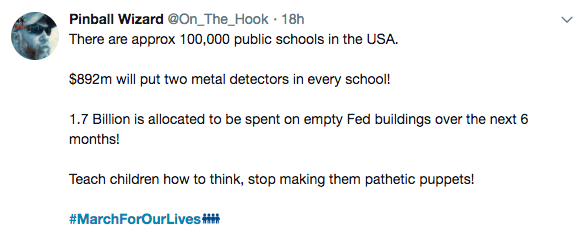
Some U.S. government representatives, like Steve King and Mary Franson, have gone so far as to attack the movement’s leaders for their appearance and compare them to the Hitler Youth of World War II.
Multiple outlets have referenced a post by Franson in which she repeats an Adolf Hitler quote about the indoctrination of Hitler Youth as part of a Facebook rant about the March for Our Lives movement, although, as of the publishing of this article, the account appears to have been deleted.
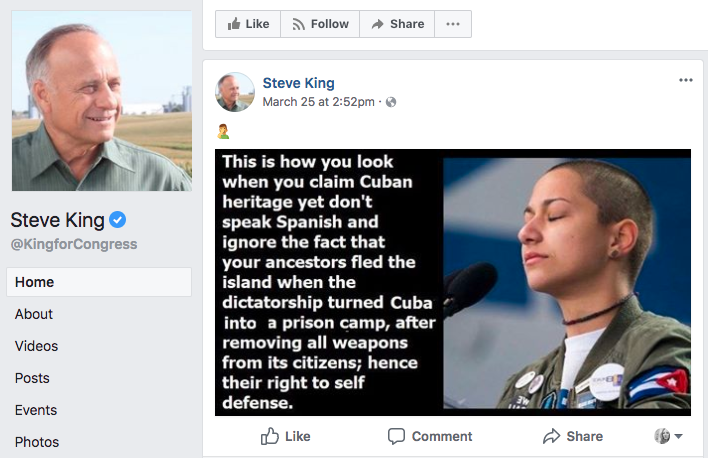
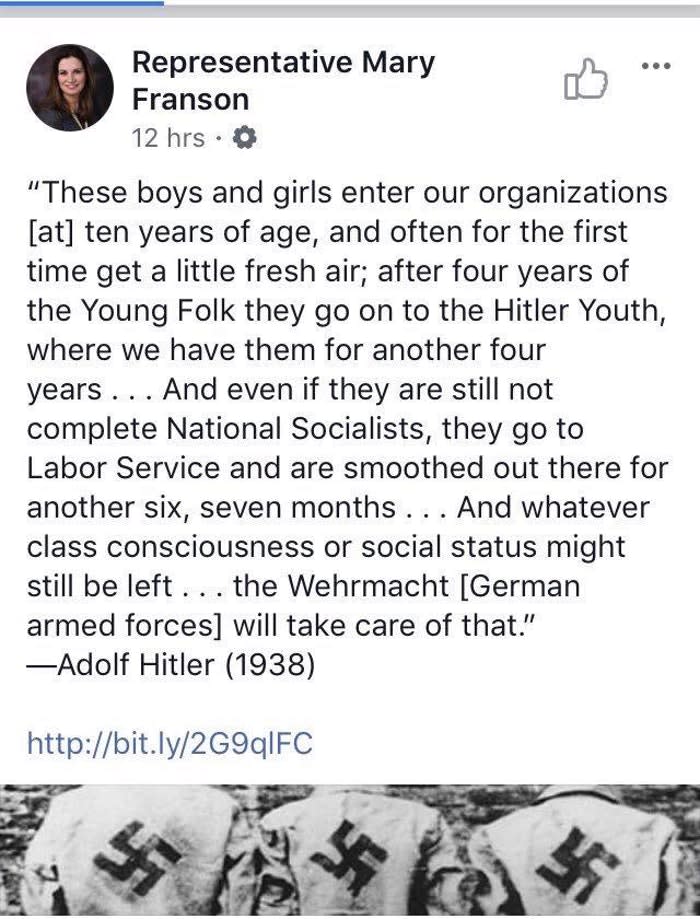
So what do you think? Do you think youth deserve a forum to push for social change?
Let us know.


